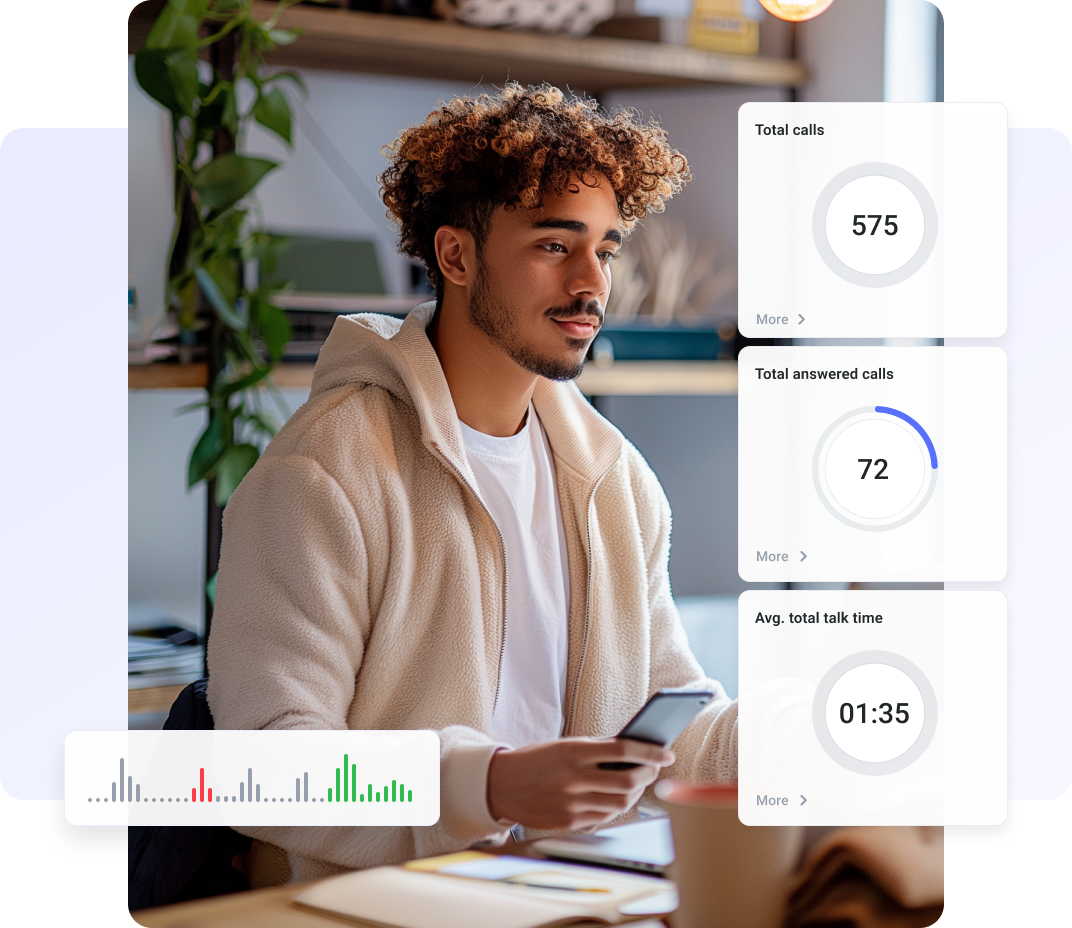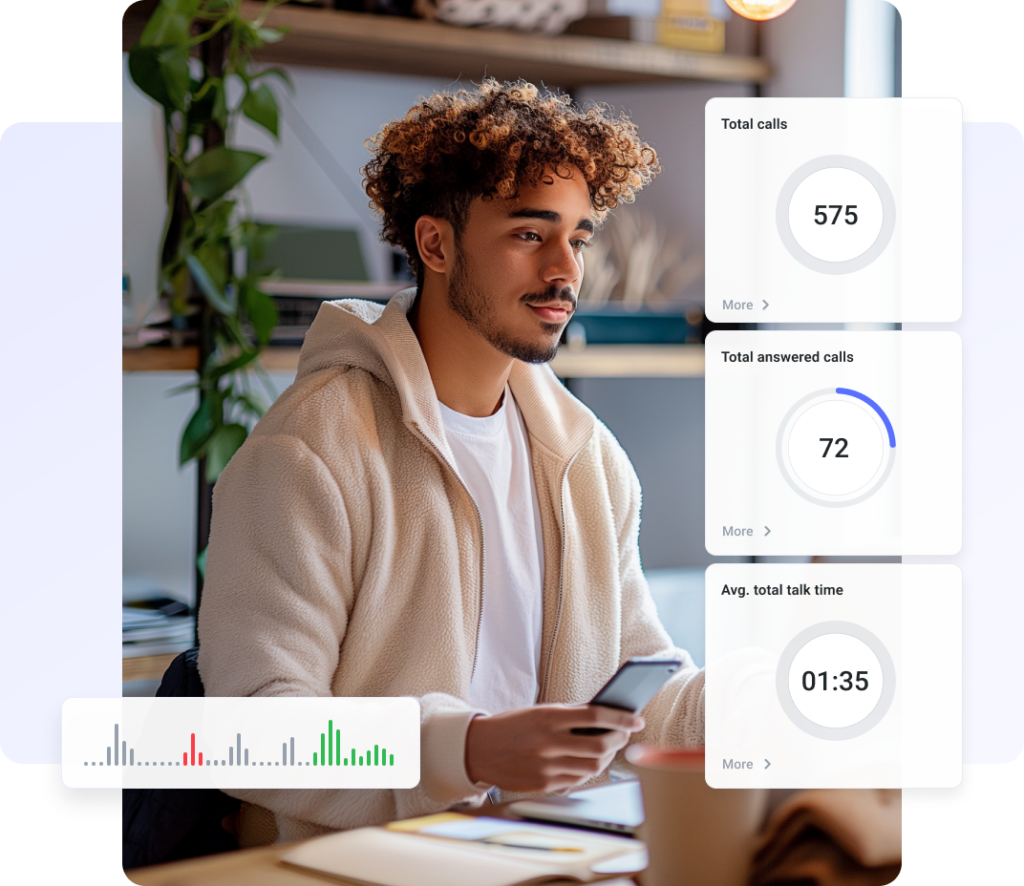- Solutions
- Solutions primary
- BY TEAM
- BY INDUSTRY
- BY USE
- BY SIZE
- View all solutions
- Solutions secondary
- Solutions primary
- AI
- Features
- Features primary
- Most popular
- first column
- second column
- third column
- fourth column
- View all features
- Most popular
- Features secondary
- Choosing the right plan
- Features primary
- Integrations
- Integrations primary
- MOST POPULAR
- first column
- second column
- View all integrations
- NEW
- first column
- second column
- View all integrations
- MOST POPULAR
- Integrations secondary
- Integrations primary
- Pricing
- Resources
- Resources primary
- Most popular
- first column
- second column
- third column
- Most popular
- Resources secondary
- Latest Blogs
- Try CloudTalk
- Resources primary
- Partners
Boost Support with Call Routing
Manage incoming calls by directing them to the best-suited available agent. Automatically place them in a queue and direct them to extensions or groups like support or sales based on criteria and rules you set.


Trusted by 230 companies worldwide
How smart routing helps your call center
Improve lead conversion at all stages
Route to the skilled agent with access to past interactions; prove you know & value leads’ inquiries.
Handle more calls and reduce costs
CloudTalk routes calls to skilled agents using your rules, ensuring customers connect with the right experts and avoid language or qualification mismatches.

Optimize business rules routing
CloudTalk lets you reserve multiple numbers for VIP clients. Tag customers as “VIP” or “Priority” to prioritize their queries and move them to the front of the queue.

Skill-based routing boosts calls, cuts costs
Skills-based routing ensures productive and efficient customer support management. Inbound calls can be automatically routed to a specific agent based on their fit and skills required by the caller. You can easily assign skill levels to your agents.
The benefit we value the most is the call routing. With the IVR, we route customers to agents who speak their language. We can also distribute calls based on the customers’ stage in the booking process, giving higher priority to those clients who are picking up their cars.
Issam Daoudi, Supervisor @DiscoverCars
Integrate databases to save agent time
This feature allows you to route inbound calls to competent agents based on all available caller information stored in CloudTalk, IVR (interactive voice response), call queues, business hours, or skillsets of individual agents.
CloudTalk offers every contact center feature that is necessary for our company to provide great customer service to our customers. We like visual IVR, easy-to-setup callback setup and various integration that enhance our workflows.
Matej K., CMO & Co-Founder @StreamBee

Plans worth every dollar
Other features
you might like
FAQs
How is scheduling done in a call center?
Scheduling in a call center involves a strategic process of organizing and managing the work schedules of customer service representatives (CSRs) to ensure optimal staffing levels and service delivery.
This includes forecasting call volume, determining call center capacity, and developing schedules that balance employee availability with business needs. Efficient scheduling requires the use of Call Center Analytics and helps to reduce wait times for customers, minimize staffing costs, and improve overall productivity and customer satisfaction.
What does “appointment scheduling” mean?
Appointment scheduling refers to the process of setting up meetings or appointments with customers, clients, or other stakeholders. It involves identifying the purpose and objectives of the appointment, selecting appropriate participants, and scheduling a time and date that works for everyone involved.
Effective appointment scheduling is a critical aspect of time management, as it helps to ensure that all necessary parties are available and prepared for the meeting, and that resources are utilized efficiently.
How do you schedule an appointment effectively?
1. Clearly define the purpose and objectives of the appointment.
2. Determine who needs to be involved in the meeting and their availability.
3. Select a date and time that works for everyone involved.
4. Confirm the appointment with all participants, including any necessary details or preparations
5. Prepare any necessary materials or resources in advance
6. Follow up after the meeting to ensure that all objectives and next steps are clear
CloudTalk is a data-driven solution for exceptional customer experience and intelligence is a key part of it.
Schedule a demo today and find out for yourself.


































